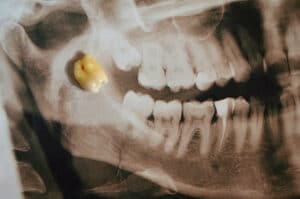Are you experiencing wisdom tooth pain and wondering when the best time is to have them removed? Deciding to undergo wisdom teeth removal can be daunting, but timing is crucial for a successful and comfortable procedure.
Wisdom teeth, also known as third molars, typically emerge in your late teens or early twenties. While not everyone experiences issues with their wisdom teeth, they can often cause pain, infection, and damage to surrounding teeth if not properly managed. Understanding the optimal timing for their removal is essential for maintaining oral health.
Determining the best time for wisdom teeth removal requires careful consideration of various factors, including the positioning and development of the teeth, individual dental health, and the recovery process.
BellaVista DentalCare believes in the importance of timing and provides valuable insights to help you make an informed decision about your wisdom teeth removal. Contact us today for more details!
Age Considerations for Wisdom Teeth Removal
Wisdom teeth, or third molars, are often the last to grow in the mouth and can cause dental issues due to space constraints.
Consequently, removing them is a frequent dental practice. The timing of removal is important, especially for older adults who may face increased risks. We will examine the factors and risks related to the age of wisdom tooth removal.
Optimal Age Range for Removal
The optimal age for wisdom teeth removal is typically between the ages of 17 and 25. During this period, the roots of the teeth are not fully developed, making the extraction process easier and less complicated.
Additionally, younger patients tend to heal faster, experience less pain, and have a lower risk of complications.
The reasoning behind this age range is that as we age, our bones become denser and the tooth roots become more established. This can make the extraction process more challenging and increase the risk of complications.
Therefore, it is generally recommended to have wisdom teeth removed before these issues arise.
Risks Associated with Removing Wisdom Teeth in Older Adults
While it is possible to remove wisdom teeth in older adults, there are certain risks involved. Some of these risks include:
- Increased Surgical Difficulty: As mentioned earlier, the roots of the teeth become more developed with age. This can make the extraction process more complicated, requiring more invasive techniques such as bone removal or sectioning the tooth.
- Longer Recovery Time: Older individuals tend to have a slower healing process compared to younger patients. This means that recovery from wisdom teeth removal may take longer in older adults, leading to more discomfort and potential complications.
- Higher Risk of Complications: Older adults may be more prone to complications such as infection, dry socket, nerve damage, and prolonged swelling. The risk of these complications increases with age due to the body’s reduced ability to heal efficiently.
- General Health Considerations: Older adults may have underlying health conditions that can impact the success of the surgery and the recovery process. Dentists must evaluate these factors before proceeding with wisdom teeth removal.
It is important to note that while there are risks associated with removing wisdom teeth in older adults, there are cases where the procedure is necessary regardless of age. In such situations, dentists will carefully evaluate the individual’s overall health, the condition of the wisdom teeth, and the potential benefits and risks before making a decision.
Seasonal Timing for Wisdom Teeth Removal
Timing is an important factor to consider when scheduling wisdom teeth removal surgery. One advantageous time for students to undergo this procedure is during their summer break. By scheduling the surgery during this time, students can take advantage of the benefits of recovery when stress levels are low and they have ample access to sunlight and fresh air.
During the summer break, students have a break from their academic responsibilities, which allows them to focus solely on their recovery without the added stress of schoolwork. Being able to spend time outdoors in the sun and fresh air can aid in the healing process and promote overall well-being.
Individual Health and Dental Readiness
Before undergoing wisdom tooth removal, it is essential to assess an individual’s overall health and dental condition. Factors like any existing medical conditions, allergies, medications, and the presence of any dental issues should be taken into consideration.
An evaluation by a dentist or oral surgeon will help determine if the individual is physically and mentally prepared for wisdom tooth removal. This assessment ensures that the procedure can be carried out without any complications and that the individual’s well-being is prioritized throughout the process.
Signs That Indicate Timing for Removal
Wisdom teeth removal is a common procedure that many individuals have to undergo. If you’re wondering whether it’s time for you to consider wisdom teeth removal, here are some signs to look out for:
- Persistent pain or discomfort in the back of the mouth.
- Swelling or inflammation around the wisdom tooth area.
- Crowding or shifting of nearby teeth.
- Development of cavities or gum disease in the wisdom tooth area.
Planning for Wisdom Teeth Removal
Planning for wisdom teeth removal is necessary for many individuals as they reach their late teens or early twenties.
However, these teeth often do not have enough space in the jaw to fully erupt or align properly with the other teeth. This can lead to various issues, such as pain, infection, overcrowding, and potential damage to adjacent teeth.
Therefore, planning for wisdom teeth removal involves consulting with a dentist or oral surgeon to assess the need for tooth extraction, scheduling the procedure, and preparing for the recovery process.
Recovery and Post-Removal Care
After undergoing wisdom tooth removal, it is crucial to prioritize recovery and post-removal care to ensure a smooth healing process. This includes following any instructions provided by your dentist or oral surgeon, such as taking prescribed medications and applying ice packs to reduce swelling.
It is also important to stick to a soft or liquid diet for the first few days and avoid using straws or smoking, as these actions can dislodge the blood clot and delay healing. Maintaining good oral hygiene by gently brushing and rinsing with salt water can help prevent infection.
By taking these necessary steps, you can promote proper healing and minimize any potential complications after wisdom tooth removal.
Consult with Your Dentist
Wisdom tooth removal is often necessary, and it’s crucial to evaluate your health and dental status first. Arranging this surgery involves talking to a dentist at BellaVista DentalCare or an oral surgeon, planning the surgery, and preparing for the recovery period.
Summer break is often the best time for students to undergo this procedure, as they have more time to rest and access to sunlight and fresh air, which are beneficial for recovery. Proper post-removal care is key to a smooth healing process. Consult with BellaVista DentalCare to determine if it’s time to remove your wisdom teeth.
FAQs
-
What is the best time for wisdom tooth removal?
The best time for wisdom teeth removal is usually during summer break, when students have ample access to sunlight and fresh air, as well as the freedom to rest. It is important to consult with a dentist or oral surgeon beforehand to assess an individual’s overall health and dental condition before undergoing the surgery.
-
What are the signs of needing wisdom teeth removed?
Some signs that you may need wisdom tooth removal include persistent pain or discomfort in the back of the mouth, swelling or inflammation around the wisdom tooth area, crowding or shifting of nearby teeth, and the development of cavities or gum disease in the wisdom tooth area.
-
What should I do after wisdom tooth removal?
After undergoing wisdom tooth removal, it is important to follow instructions provided by your dentist or oral surgeon to ensure a smooth healing process.
This may include taking prescribed medications and applying ice packs to reduce swelling. Avoiding activities such as using straws or smoking can help the blood clot remain in place and promote better healing.


